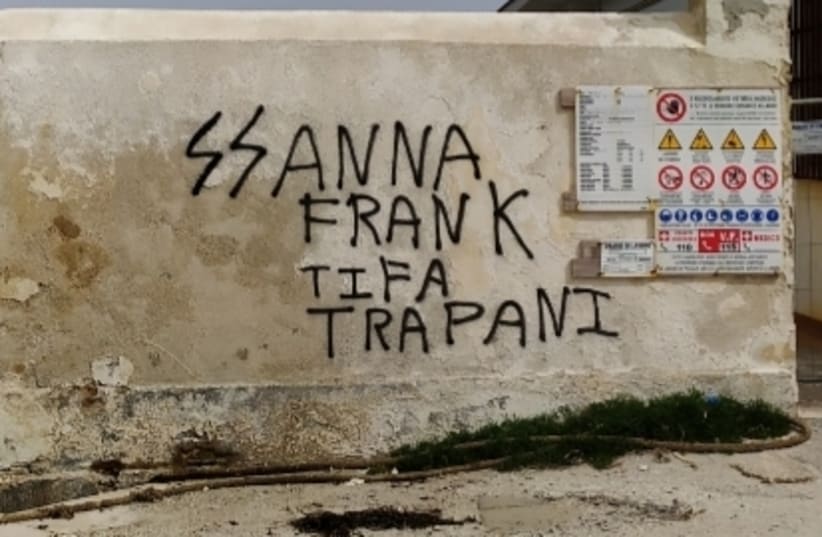Officials from the town of New Castle, New York state, condemned antisemitic and racist graffiti that was recently found at a train station in the area, according to a report in the local news site Journal News on Friday.
The antisemitic and racist graffiti was found after a resident who was cycling with his children discovered statements written in chalk on a sidewalk, which included lines such as "Ann (sic) Frank should have worn a TAC mask," and the word "Nigeria" with the drawing of a penis. Black Lives Matter (BLM) signs were also stolen from a local church.
Police responded to calls from the local Presbyterian Church of Mount Kisco, where the BLM signs were stolen to investigate the incident. The case also comes following another incident earlier that month in which a BLM banner hung by the Chappaqua Quakers was set ablaze and vandalized.
In response to the latest incident, the town's official Facebook page issued a statement, saying "While it pains us to continue to report on these hate crimes, and we fear giving them oxygen, we will not allow antisemitic and racist incidents in our community to be swept under the rug or covered up."
"Not only will we continue to say 'Hate Has No Home Here,' 'Love thy Neighbor,' 'Black Lives Matter,' and 'All are Welcome Here,' but we will back up our words with actions. If 2020 has taught us anything, it is that the future requires substantial changes and a 'new normal,'" the statement added.
State Senator Pete Harckham also condemned the antisemitic and racist acts.
"It is truly sad and regrettable that incidents as such continue to plague this community. "We must all work together to ensure that a greater spirit of tolerance and respect becomes the norm in our society," Harckham noted.
